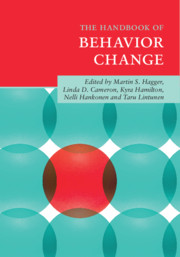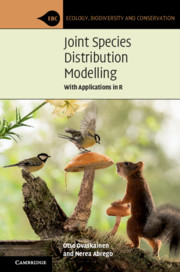6 results
Wellbeing Promotion in Tasmanian Schools: Have We Forgotten Support Teachers?
-
- Journal:
- Australasian Journal of Special and Inclusive Education / Volume 47 / Issue 2 / December 2023
- Published online by Cambridge University Press:
- 29 August 2023, pp. 96-109
-
- Article
-
- You have access
- Open access
- HTML
- Export citation

The Handbook of Behavior Change
-
- Published online:
- 04 July 2020
- Print publication:
- 23 July 2020

Joint Species Distribution Modelling
- With Applications in R
-
- Published online:
- 18 May 2020
- Print publication:
- 11 June 2020
Conceptualizing Age-Friendly Communities*
-
- Journal:
- Canadian Journal on Aging / La Revue canadienne du vieillissement / Volume 30 / Issue 3 / September 2011
- Published online by Cambridge University Press:
- 12 July 2011, pp. 479-493
-
- Article
- Export citation
In Their Own Words: Exploring the Phenomenological Field of a Sample of Employed Persons Who Are Deaf in Barbados
-
- Journal:
- International Journal of Disability Management / Volume 4 / Issue 1 / 01 April 2009
- Published online by Cambridge University Press:
- 23 February 2012, pp. 12-18
- Print publication:
- 01 April 2009
-
- Article
- Export citation
From arctic lemmings to adaptive dynamics: Charles Elton's legacy in population ecology
-
- Journal:
- Biological Reviews / Volume 76 / Issue 1 / February 2001
- Published online by Cambridge University Press:
- 27 March 2001, pp. 129-158
- Print publication:
- February 2001
-
- Article
- Export citation

